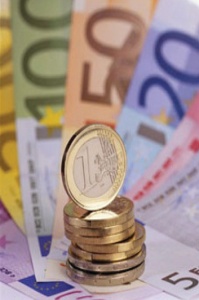Britons overspending on travel money by €215 million euros

New research from foreign exchange specialist, Moneycorp, has revealed that people travelling to the Eurozone this summer will potentially miss out on an extra €215 million as a result of purchasing their foreign currency in person rather than online.
According to figures from the Office for National Statistics, as many as 10.7 million people may travel to the Eurozone between July and August this year, each taking with them an average of £561 worth of foreign currency.
Moneycorp surveyed 2,000 Britons heading to the Eurozone this summer and asked them how they planned to buy their Euros; online, through a high street retailer, at a high street bank or once they arrive at the airport.
Of those travellers polled, only seven per cent plan to order their currency online securing the best rates. Indeed, the majority of those travelling (37%) have said that they plan to exchange their money with a high street retailer; while a further one in five people (20%) said that they will be visiting a high street bank.
The research has also found that by choosing to exchange their money with a bank or high street retailer, travellers could be losing anything up to five per cent in the exchange when compared to buying online.
ADVERTISEMENT
The survey also revealed that 11% of respondents planned to buy their currency when they reached their European destination, leaving themselves open to unknown exchange rates and charges at point-of-sale and ATMs.
Olann Kerrison, currency expert at Moneycorp, comments: “People will spend a serious amount of time thinking about and booking their holiday to get the best deal. Yet when it comes to exchanging their money, people potentially throw out all that hard work by not taking the time to shop around for the best rates.
“If travellers didn’t leave buying their currency until the last moment, then there is every chance that in relative value, people could save as much as £10 for every £100 exchanged.”

